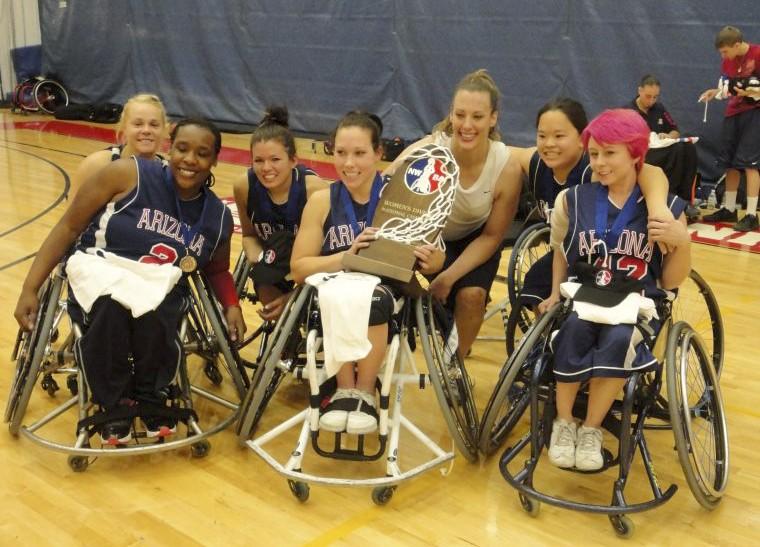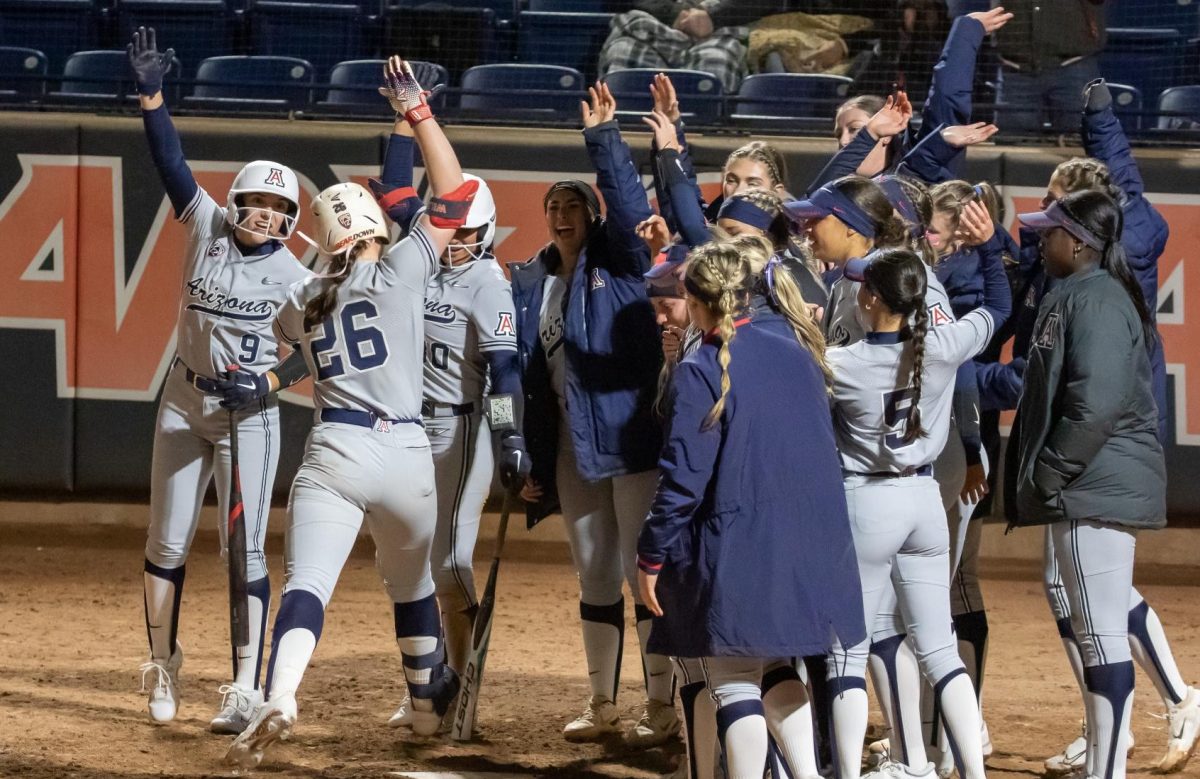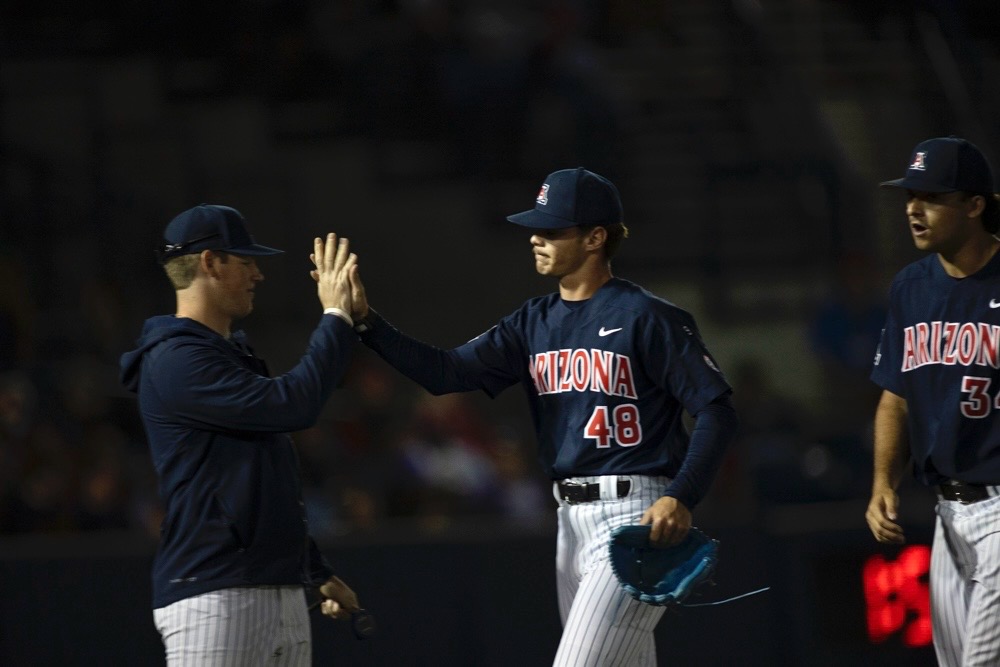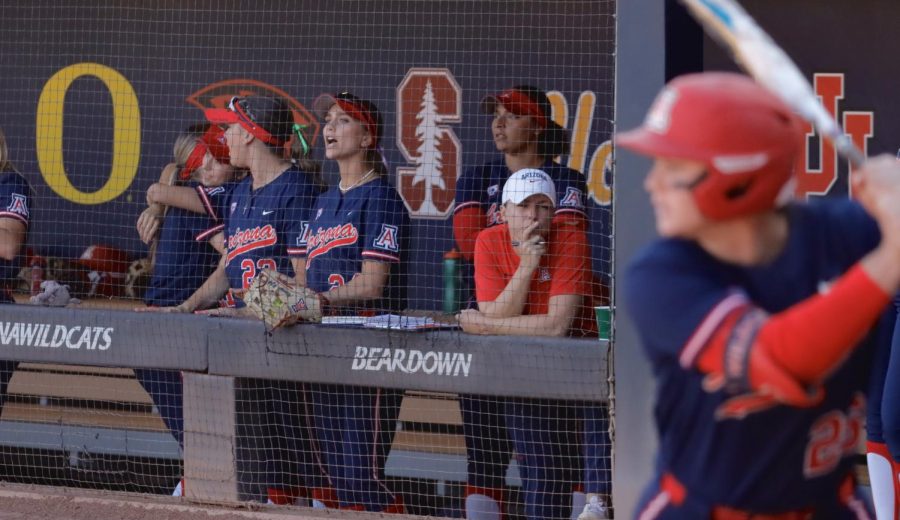There’s a culture change going on for the UA women’s wheelchair basketball team.
Arizona defeated the Denver Lady Rolling Nuggets 33-30 on Saturday to win the program’s first national championship in the women’s division of the National Wheelchair Basketball Association national tournament. The tournament took place at the U.S. Olympic Training Center in Colorado Springs, Colo.
“We’ve been averaging 60 points all year long and for some reason we just could not make buckets,” head coach Pete Hughes said. “Fortunately our defense was really strong. We sucked it up and withstood the storm.”
The team was led by leading scorer Loraine Gonzales, 34, a former Paralympian who took home a gold medal with the U.S. team in Beijing in 2008. Gonzales had 18 points, 16 of which came in the second half.
“For them to now win a national championship that they have never won before, it says more than just winning,” Gonzales said. “It says that the Arizona program is trying to make a turn.”
The national championship caps a journey that started three years ago when Hughes took over the head coaching job of the UA’s women’s wheelchair basketball team. Gonzales said he’s a big part of why she decided to be part of the team, even though she lives in Rio Rancho, N.M., near Albuquerque.
“(Hughes) wants them to have their dreams come true. He wants them to succeed in their goals,” Gonzales said. “If that wasn’t the case, I wouldn’t want to be a part of the program.”
Gonzales was a high school basketball athlete before an ACL injury and complications with a bone infection required her to have more than 40 surgeries to try to save her leg. When the surgeries were unsuccessful, her leg was amputated below the knee.
“I was 19 years old. I had been an athlete my whole life,” Gonzales said. “At that point I didn’t really know what I was going to do. I saw wheelchair basketball late one night on some off-cable channel. At that moment, I got on the computer, found my local team and I haven’t looked back since.”
The seven-member team includes Gonzales, who spent the last two years playing professionally in Italy, and second-year pharmacy student Jenn Poist, who will represent the U.S. in London at the 2012 Paralympics.
Poist was diagnosed with a spinal tumor when she was 7 years old and was paralyzed from the waist down. She began playing wheelchair basketball at 14 years old.
Arizona competed against the U.S. Paralympic team in November 2011, something that benefitted both the team and Poist’s quest to be selected in the try out to represent her country that took place in January.
“We have such an advanced elite team,” said Hughes, who was recruited to play wheelchair basketball for the Arizona men’s wheelchair basketball team in 2005. “We lost to them by only 11 points. We gave them a real battle. We realized, ‘Hey, if we can stick with team USA, we can beat anybody.’”
For Poist, the balance between pharmacy school and wheelchair basketball is “really difficult.” The team practices four times and lifts weights three times a week at the Student Recreation Center. Because of the demand of her course work and her involvement in the Paralympics, she will have to take off the fall 2012 semester.
Poist began playing at the for UA five years ago, and said making the U.S. team had been a goal since she started playing wheelchair basketball in college. Because she “has always wanted to get to that level,” Arizona’s game against team USA was helpful for her dream of becoming a Paralympian.
“They’ve won the past two Paralympics gold medals,” Poist said. “Playing against them really showed me what their strong points are at as a team. I knew what the coaches on that team liked to see in players.”
She is one of 12 players who will represent the U.S. in August. After she returns from England, Poist said she will focus on her career, rather than playing basketball professionally overseas.
The individual and team success of the program shows that Hughes is a part of something bigger as a coach at the UA, which hosts the largest disabled sports program in the nation. He gives disabled athletes the chance to continue to compete.
“We’re recruiting all the time,” Hughes said. “If you blew your knee out, and you miss basketball, this is an option to play basketball. You just have to do it from a wheelchair.”
And for Poist, that’s the opportunity she’s been chasing since she first became interested in wheelchair basketball.
“Basketball is probably the most important thing in my life,” Poist said. “It’s really given me an outlet in certain issues. It’s given me a way to accept being disabled.
“Everyone has their own struggles that they have to deal with and everyone has found a way to deal with it. Everyone has gone through adversity and yet they’ve all overcome it.”









